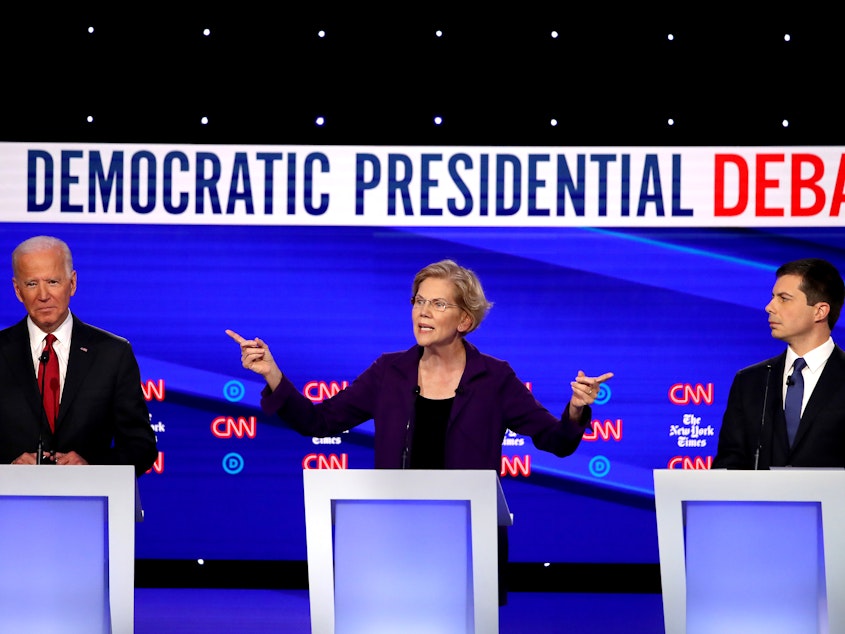Friday Politics: Washington's 'Little Tuesday' primary will matter in 2020

KUOW's Patricia Murphy talks with political analysts Joni Balter and C.R. Douglas about Washington's presidential primary, happening on March 10, 2020.
- Washington's primary has historically been held in May. But starting in 2020, the primary will be held earlier in March.
- Unlike past Washington primaries, voters will have to indicate which party's primary they are voting for on their ballot. So if a voter wants to support a Democratic candidate, for example, they have to mark down they are participating in the Democratic primary, not the Republican.
Why did Washington state move its primary from May up to March 10?
Joni Balter: Late May was proving cycle-after-cycle to be just too late. We were wasting money by having this primary that didn't really end up deciding anything. And so moving it to March 10 -- the week after Super Tuesday is going to make a huge difference, especially if the results out of the first states and Super Tuesday are diffused -- suddenly, Washington state could be in play. Candidates would have to come here for reasons other than just seeking our money at private fundraisers. Candidates will have to come here and discuss Hanford apples, trade, Boeing, our issues.
Voters are going to have to declare a party on March 10. How is that going to change things?
Balter: This time you do, in fact, have to check a box declaring which party's primary you're participating in. That is unusual for voters here, and a whole bunch of them aren’t going to like this, especially independent voters, because they sort of pride themselves on this ability to A) keep that private; and B) to do whatever they want. They'll feel funny checking that box and declaring the party.
Douglas: Let me stick up for the parties, however. Parties serve this important function in our democracy. We basically have to have them. It would be chaos without them. And they need to outreach. They need to engage voters. They need to talk to them. They need to, you know, activate them, even fundraise with them. And so letting them have access to this kind of information is important. If you agree that parties are necessary, you basically, it seems to me, have to agree that this kind of thing is necessary so they can thrive and survive. Most states have party registration. We're not the only ones.
Anybody want to make a prediction about who Washington Democrats will pick to challenge the president?
Douglas: I would say Sanders is likely to win our primary. He's riding high right now. He's the lead in Iowa, the first state. He's in the lead, New Hampshire, the second state. He's in the lead in fundraising. If you look in our caucuses four years ago, he won. He also did very well in our primary four years ago. We're a pretty progressive state. Bernie's got a lot of energy here, and arguably we're even bluer than we were four years ago.
Balter: I think we have to get out of our Seattle-King County bubble here. This year, it seems to me like the likely winner is any Democrat who can win. And that brings me to Joe Biden as being more likely, because voters are making this calculation not so much who did they fall in love with, but who do they think can win because they want to get rid of the president. I will also add that Elizabeth Warren has a very organized structure here. So I would guess it's Biden or Warren.




